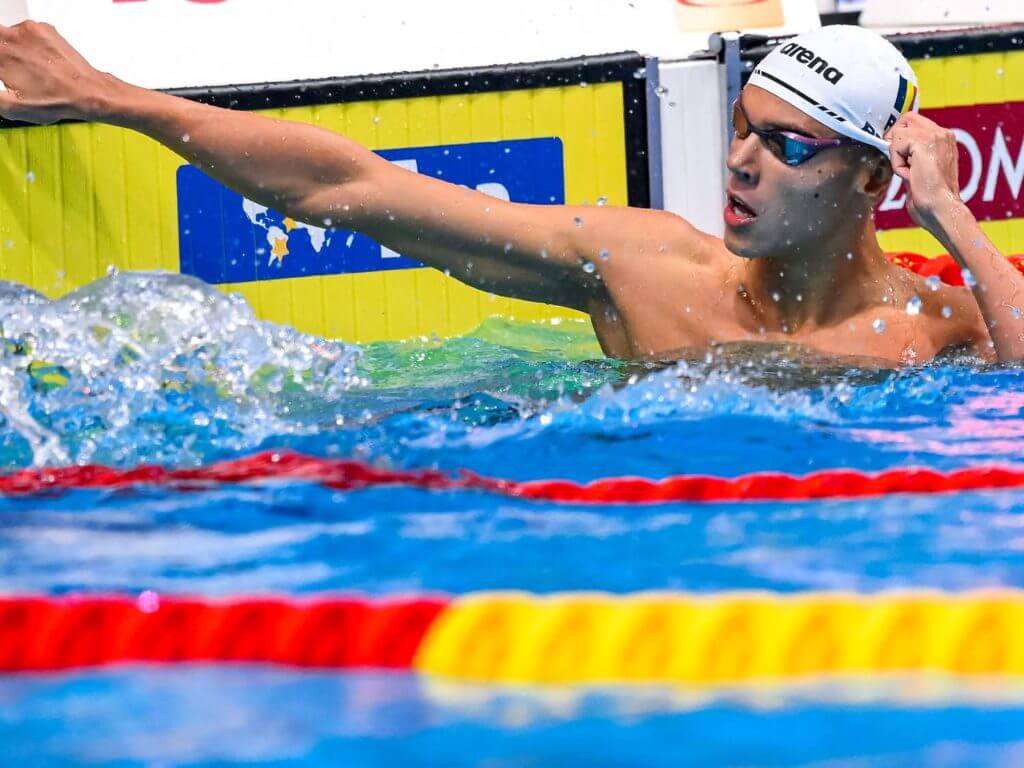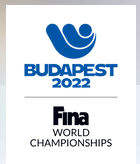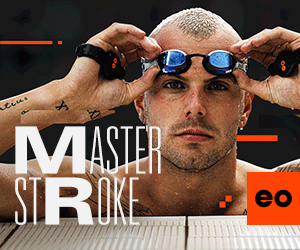The Teflon Record: How 100 Freestyle World Mark of Cesar Cielo Keeps on Surviving

Editorial content for the 2022 FINA World Championships coverage is sponsored by eo SwimBETTER.
See full event coverage.
Swim faster... faster, with game-changing data insight into your technique. eolab.com #eoSwimBETTER

The Teflon Record: How 100 Freestyle World Mark of Cesar Cielo Keeps on Surviving
The feeling should’ve been familiar to swim watchers with certain experience.
David Popovici entered Wednesday’s final in the men’s 100 freestyle with big hopes. His semifinals time of 47.13 mounted a brief charge at the world record set in 2009 by Cesar Cielo. With the eighth-fastest time in history, the sixth-fastest textile swim and all the momentum in the world, surely this was it.
Surely Wednesday was the day that the Brazilian’s enduring record would somehow bite the dust.
It didn’t. Again. And while Popovici’s gold in the 100 free, in 47.58, was more than deserving, it reinforced again how hallowed the number 46.91 set by Cielo 13 years ago continues to be.
Cesar Cielo’s record is increasingly an oddity, though maybe not for the reasons you’d think. Eleven long-course world records remain from the techsuit era. Nine are individual records, plus the two men’s freestyle relays. Nine are on the men’s side, and seven date from the legendary carnage at the 2009 World Championships in Rome.
(Of note: Michael Phelps’ 400 IM mark and the 400 free are holdovers from the 2008 Olympics; Cielo set the 50 free mark later in 2009, as did Chinese swimmer Liu Zige in the 200 fly.)
The Rome Worlds included a wholesale rewriting of the men’s freestyle records that still stands – Cielo in the 100 free, Paul Biedermann in the 200 and 400 free, Zhang Lin in the 800 free. Each record has traced unique journeys.
No one has touched the 200, at a nice round 1:42.00. Yannick Angel came closest in 2012 at 1:43.14, and it’s firmly in the sights of Popovici after a 1:43.21 in Budapest.
Sun Yang’s Olympic time in 2012 swiped within .07 of Biedermann’s 400 mark, though that isn’t exactly un-problematic. By going 3:41.22 in Budapest, Elijah Winnington is within 1.15 seconds of the record, renewed hope that its days night be numbered.
The textile-best time in the 800 belongs to Sun at 7:38.57, 6.5 seconds shy of Lin. That comes with the caveat, of course, of the 800 not being part of the 2012 or 2016 Olympics.
That leaves Cielo, whose record has absorbed blow after blow yet somehow lived to tell the tale. A sampling:
- Caeleb Dressel went 46.96 at 2019 Worlds to get within .05. Since, Dressel has won five Olympic gold medals and endured a global pandemic. No record though, despite 47.26, 47.23 and 47.02 at an Olympics where only six world records were set (one by Dressel in the 100 fly). He withdrew from the event in Budapest.
- Cameron McEvoy went 47.04 at Australian Championships in 2016, a month before his 22nd birthday. So in Rio then? Nope, 47.93, in semis. Then Worlds in Budapest in 2017? 47.92.
- No worries: Next Aussie sprinter up, Kyle Chalmers, who went 47.08 as runner-up to Dressel at Worlds in 2019 at age 21. Tokyo, here the record comes, right? Negative, though for epidemiological reasons well beyond their control. Chalmers got close, at 47.08 in Tokyo.
- That already spells out James Magnussen’s plight then. The precursor to McEvoy and Chalmers went 47.10 at Aussie Trials in 2012, then won silver in London, but in 47.53, .01 behind Nathan Adrian’s career-best.
- The European record belongs to Kliment Kolesnikov, who went 47.11 in the semifinals in Tokyo to trigger an official record watch in the press tribune. But he was no faster in finals at 47.44 for bronze. Since then, Russia is nation non grata. He’s 21, so there’s time, but being 21 hasn’t helped anyone of the aforementioned.
- Ryan Held went 47.39 (and 47.43) at Nationals in 2019. But timing hasn’t been on his side, and he hasn’t been sub-48 since (48.07 at Trials in 2021). He’ll turn 27 next month.
For the record, know that Cielo is paying attention:
46.91 ?? Sobreviveu por mais uma!
??? pic.twitter.com/B8qo2KDW1A— Cesar Cielo (@CesarCielo) June 21, 2022
Those near-misses should indicate two truths. First, we’re quibbling over miniscule fractions of a second. That last tenth or few hundredths is exceedingly difficult to close down. And it’s harsh to judge any of these sprinters careers on falling short of those final few fleeting fractions.
It’s also a testament to how good the suits were. Those tiny margins that the supersuits promised in their marketing copy have been the difference between oblivion and persistence. (For further evidence, David Walters and Stefan Nystrand remain 11th and 12th all-time, respectively, in the 100 free from 2009 Worlds. Great swimmers both, but not of the caliber of many behind them.) Cielo was an all-time great sprinter in any suit; the combination of a great swimmer and the technology of the day has made the time nearly untouchable.
For as resilient as Cielo’s record has been, hope springs eternal that this latest blitz of talent might be the ones. Popovici and Dressel are the obvious avatars, but there are others. Chalmers’ peak may not be done. Kolesnikov’s certainly isn’t, if the geopolitics and his belligerent government comply.
Precocious 20-year-old Russian Andrey Minakov has been 47.57. Alessandro Miressi, at a best time of 47.45, is just 23. Add in Maxime Grousset (47.52 at age 23), Joshua Liendo (47.55 at 19), Sunwoo Hwang (47.56 at 19) and Chinese swimmer Pan Zhanle, who was 47.65 and doesn’t turn 18 until August, and Cielo’s record may be facing its toughest test yet.
It has, though, escaped many a tight scrape before.





